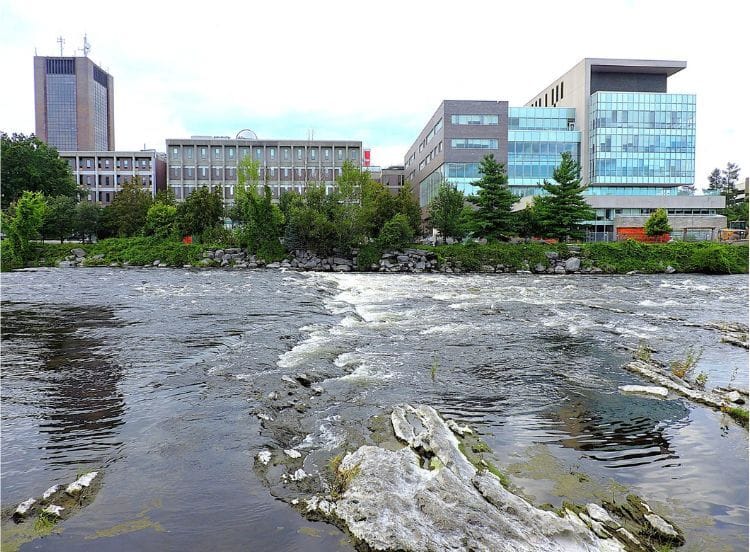In one month, students will return to post-secondary schools across Ottawa. It will be the first semester at Algonquin College since it suspended 37 active programs and four dormant ones to help with its $60 million deficit for the 2025-2026 academic year.
But it’s not just Algonquin struggling; budget constraints are also hitting Carleton University hard.
At the beginning of the 2024-25 fiscal year, it was estimated that Carleton’s operating budget deficit would be $26 million. But now it is on track to be “significantly higher” due to a federally imposed cap on international undergraduate student visas and tuition freezes. The 2023-2024 academic year deficit was $50.1 million.
Now Carleton is implementing “significant measures” to address financial shortfalls.
“In response to these challenges, we are implementing a Financial Sustainability Framework, which will include cost containment strategies, revenue growth ideas, academic program renewal and an organizational excellence and optimization plan,” the university said in a statement.
In January 2024, Marc Miller, Minister of Immigration, Refugees and Citizenship, said the cap was expected to result in about 360,000 approved study permits, a decrease of 35 per cent from 2023.
While Miller said “International students are vital to Canada and enrich our communities,” he noted they did not always have the opportunity to access the resources needed for an “enriching academic experience.”
But that also means post-secondary schools are now broke. Carleton has said it has a 55 per cent reduction in first-year undergraduate international student enrolment, along with a 35 per cent reduction of incoming international graduate students. International students also pay significantly higher tuition than domestic students.
On top of that, Ontario domestic tuition rates were cut by 10 per cent in 2019 and have been frozen since then. Queen’s University – one of Canada’s oldest post-secondary institutions – has feared it will go under if nothing is done. But federal legislation implemented last June blocks universities from declaring bankruptcy.
Carleton has said it is in a better situation than a place like Queen’s because it relies less on international students.
Aidan Kallioinen, associate vice-president of university and government relations with the Carleton University Students' Association (CUSA), said students will need to pay more if they want access to additional services. In 2023, a referendum was held to see if students wanted to pay $25 extra every semester for additional mental health and counselling services.
Then in November 2024, another referendum passed for students to pay an additional $39 athletics fee every semester for a new two-storey fitness facility with expanded amenities. It is scheduled to open in fall 2028 and the semester athletics fee has climbed to $158 per term, reported Capital Current.
"These services that normally could be funded through operating revenue are having to be funded through ancillary fees and passing those costs down to students," Kallioinen told CBC. "It's no fault of the university's. They're frankly strapped for cash."




